Africa
Nigeria opposition leader Atiku Abubakar quits former ruling PDP party
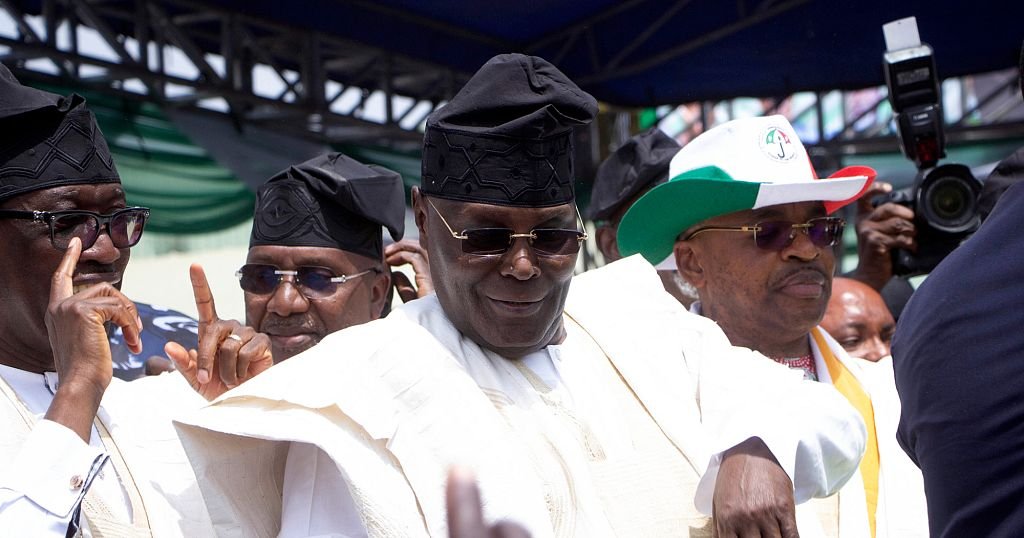
Nigeria’s opposition leader, Abubakar Atiku, has taken a significant step by announcing his departure from the People’s Democratic Party (PDP), the party under which he pursued the presidency in previous elections without success.
In a heartfelt letter addressed to the party’s leadership, Atiku expressed his concerns over the party’s drift from its foundational principles.
“With a heavy heart, I resign, acknowledging the irreconcilable differences that have arisen,” he stated.
Atiku extended his gratitude for the invaluable experience of serving two full terms as Nigeria’s vice president from 1999 to 2007 and for being the party’s presidential candidate in both 2019 and 2023.
The PDP has a legacy of 16 years of governance in Nigeria. Recognizing the urgent need for change, Atiku has joined forces with other opposition leaders to form a new political coalition, the Africa Democratic Congress, poised to challenge President Bola Tinubu’s All Progressives Congress (APC) in the upcoming elections scheduled for 2027.
This dynamic coalition unites Atiku and Peter Obi, both of whom were runners-up in the last presidential elections, along with the formidable former governor of Kaduna State, Nasir El-Rufai.
This coalition, which also includes prominent former lawmakers and governors from the ruling party, marks a pivotal moment in Nigerian politics.
It recalls the powerful alliance that successfully ousted the PDP from power in 2015, ending its 16-year dominance. As the political landscape shifts, this new alliance aims to inspire hope and bring about transformative change for the Nigerian people.
Africa
White House confirms Trump diagnosed with common vascular condition
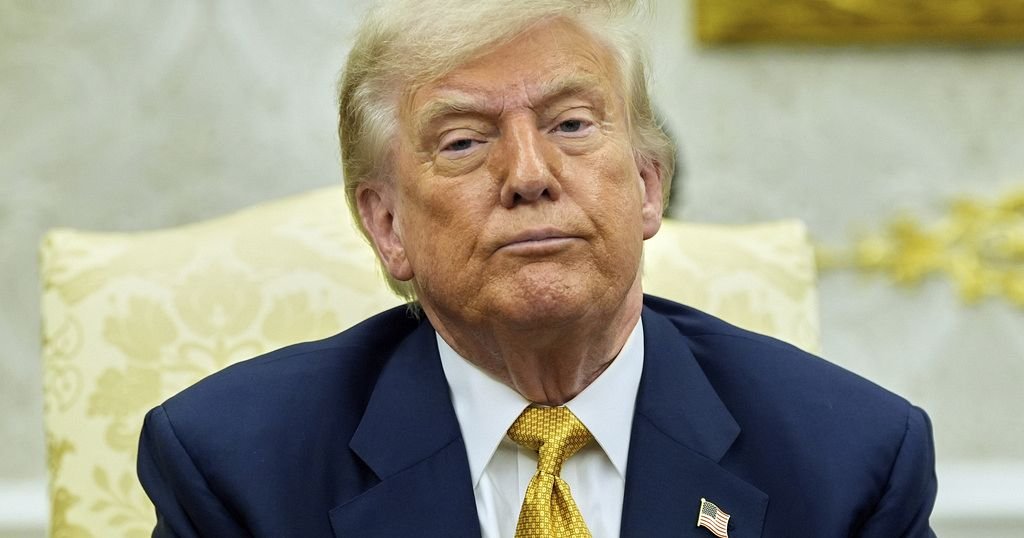
The White House confirmed Thursday that former President Donald Trump has been diagnosed with chronic venous insufficiency, a common vascular condition often seen in older adults. The announcement followed concerns raised after Trump was seen with mild swelling in his lower legs and bruising on his hand.
White House Press Secretary Karoline Leavitt said the condition was discovered during a recent medical checkup.
“This is consistent with minor soft tissue irritation from frequent handshaking and the use of aspirin,” Leavitt noted, adding that the medication is part of Trump’s standard cardiovascular prevention regimen.
Chronic venous insufficiency occurs when valves inside the veins — responsible for helping blood flow back to the heart — begin to fail. While the condition can cause swelling and discomfort, experts say it is largely manageable.
Dr. Andrea Obi, a vascular surgeon at the University of Michigan, explained:
“The causes really are multifactorial… It is more common as we age. Treatment tends to be compression stockings, walking, and in some cases, minimally invasive procedures to close off malfunctioning veins. Overall, it’s a very common and benign diagnosis.”
The disclosure is notable, as Trump has historically kept much of his health information private. The White House has not released further details on his current treatment plan, but officials emphasized the condition poses no serious health threat.
Africa
Drone strikes target oil fields in Iraq’s Kurdish region
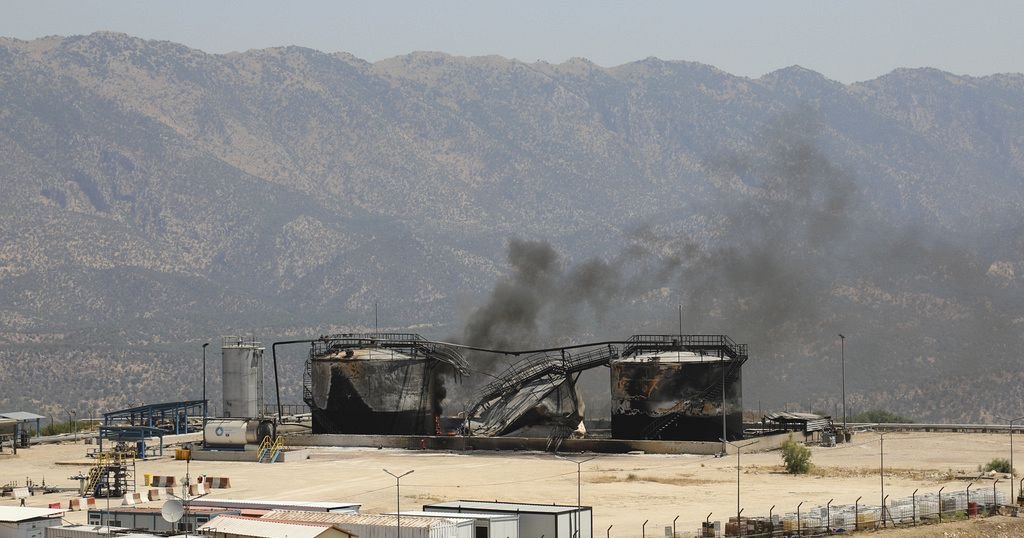
Smoke was still rising Thursday from an oil field in Iraq’s Kurdish region, days after a drone strike hit the site.
The Sarang field in Dohuk province, operated by U.S.-based HKN Energy, was attacked on Tuesday—just as the company signed a new investment deal with the Iraqi government.
It was one of several recent drone strikes on oil infrastructure in northern Iraq.
On Wednesday, drones also targeted fields in Zakho and Baadre, causing damage but no reported injuries.
The Kurdish region’s Ministry of Natural Resources confirmed the Sarang explosion was caused by a drone, following a similar strike Monday on the Khurmala field in Irbil.
No group has claimed responsibility, but the attacks have heightened tensions between Baghdad and Kurdish authorities, raising concerns about the region’s energy security.
Africa
Low turnout for municipal elections in Togo: Silent boycott or just a slow start?
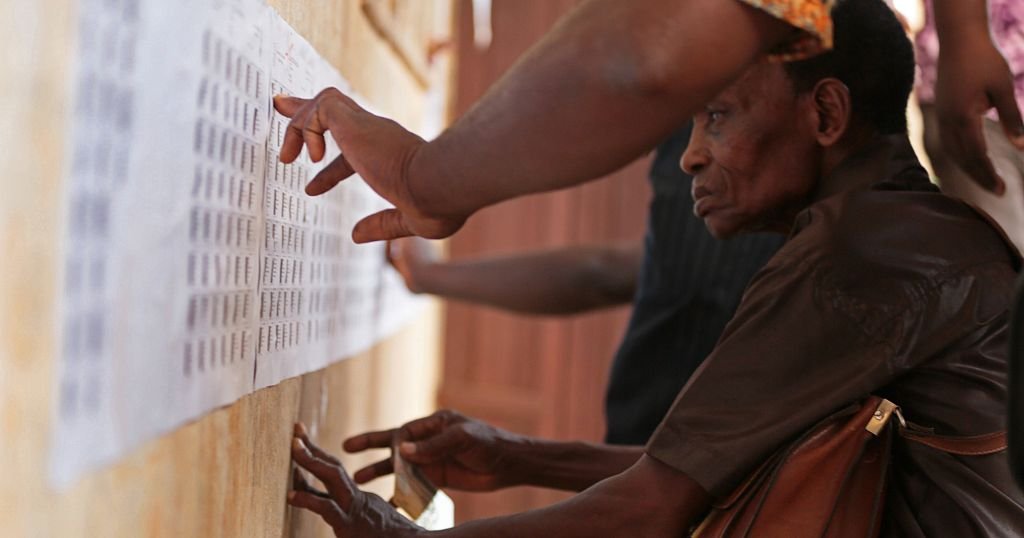
Polling stations in Togo opened on July 17, 2025 for the country’s municipal elections. But by mid-morning, just a trickle of voters had been to cast their votes in the capital Lomé. Are voters boycotting the poll or just not interested? Africanews correspondent Noël Tadégnon went to find out.
It is municipal election day in Togo. On Thursday 17 July, voters are called upon to elect their municipal councillors. But from the early hours of the morning, one thing is clear: turnout at polling stations is disappointing. In Lomé, the country’s capital, several polling stations remain sparsely populated, with voters slow to arrive.
‘For the moment, the centre is a little quiet. People are coming in slowly, but it’s not like that at the moment. I hope they will come and vote anyway,’ says Dalmeida Ayélé, president of a polling station, visibly concerned about voter turnout.
Those who did make the trip to the polls, however, voted in a peaceful atmosphere. No incidents were reported early in the morning, despite a tense political climate marked in particular by the call for disobedience launched by the M66 movement, a collective of activists mainly from the Togolese diaspora.
Civic duty
‘I just fulfilled my civic duty this morning. I was very proud to do so because it is a civic duty that every citizen must perform,’ said Waguéna Barthélemy, a voter encountered outside a polling station.
The stakes are high for this local election. In a country seeking effective decentralisation, many voters hope to see their future municipal councillors bring new momentum to their communities. ‘My expectations for these elections are that the population will wake up and take charge of managing their communities,’ explains Kuevidjen Folly.
Sénou Lodowa expresses the same impatience: ‘They should try to see things and change things. Because everything that isn’t working needs to work.’
While the morning has been relatively calm, the question of turnout remains unanswered. Is this simply a delay in voters arriving, or is it a sign of deeper disengagement, or even a silent boycott? We will have to wait until the end of the day to fully gauge the extent of this demobilisation.
-

 Lifestyle3 days ago
Lifestyle3 days agoA rap festival near the Arctic Ocean delights crowds under the midnight sun
-

 Europe3 days ago
Europe3 days agoTrump’s 50-day shift on Ukraine is a big deal — but probably not for Putin
-

 Europe5 days ago
Europe5 days agoCole Palmer leads Chelsea to dominant victory over PSG to win FIFA Club World Cup
-

 Lifestyle5 days ago
Lifestyle5 days agoLove Island sparks debate about race and dating among Black women
-

 Lifestyle3 days ago
Lifestyle3 days agoRoman era mosaic panel with erotic theme that was stolen during World War II returns to Pompeii
-

 Europe3 days ago
Europe3 days agoAmerican accused in murders of mother and baby appears before Italian judge after extradition
-

 Asia3 days ago
Asia3 days agoThai police arrest woman who allegedly seduced and blackmailed Buddhist monks
-
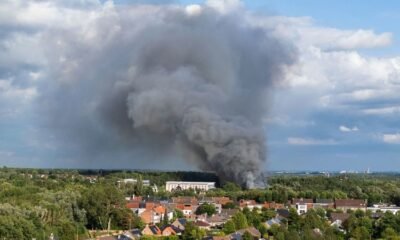
 Europe2 days ago
Europe2 days agoTomorrowland: Huge fire ravages Belgium music festival stage ahead of opening




